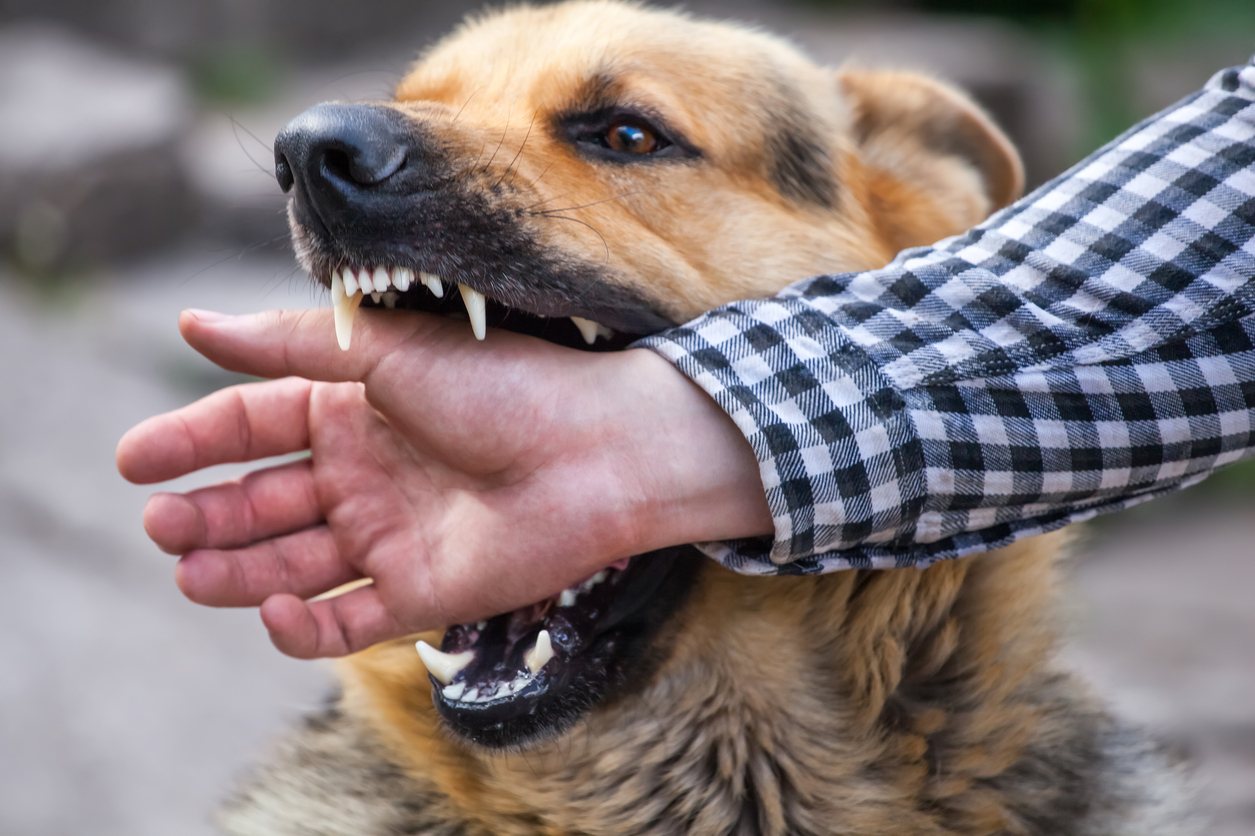Introduction
Dogs, our loyal companions, can sometimes exhibit unexpected aggression. Understanding why dogs bite is crucial for fostering harmonious relationships between humans and animals. By exploring the underlying causes, we can prevent bites, ensure safety, and strengthen the bond between us.
In this comprehensive guide, we delve into the multifaceted reasons behind canine aggression. From territorial instincts to anxiety and medical conditions, we uncover the hidden triggers that drive dogs to bite. By gaining insights into their behavior, we empower ourselves to create safe and nurturing environments for both humans and dogs.

Source animalia-life.club
Territorial Instincts
Protecting Home and Territory
Dogs are inherently territorial animals and view their home as their sanctuary. When they perceive a threat to their territory, they may bite to protect it and their loved ones. This instinct is particularly strong in breeds bred for guarding, such as German Shepherds and Rottweilers. Visitors, unfamiliar animals, or loud noises can trigger territorial aggression.
Fear and Anxiety
Fear and anxiety can also lead to territorial aggression. If a dog feels threatened or scared in its own home, it may resort to biting as a defense mechanism. Common triggers for fear and anxiety include loud noises, strangers, or past traumatic experiences.
Protective Instincts
Maternal Protection
Mother dogs are highly protective of their puppies and will fiercely defend them against perceived threats. Even the most gentle and docile dogs can become aggressive if they believe their pups are in danger. It's crucial to respect a mother dog's space during this time.
Protective of Owners
Some dogs develop a strong bond with their owners and may become protective in their presence. If they sense a perceived threat to their owners, they may bite to defend them. While this behavior can be admirable, it's essential to train dogs to control their aggression and prevent potential harm.
Medical Conditions
Pain and Discomfort
Dogs may bite when experiencing pain or discomfort. If a dog is injured, sick, or has a medical condition that causes them distress, they may bite out of fear or reactivity. It's crucial to seek veterinary attention if your dog exhibits sudden aggression, as it may indicate an underlying medical issue.
Neurological Conditions
Certain neurological conditions, such as dementia or seizures, can disrupt a dog's normal behavior and lead to unpredictable aggression. Dogs with these conditions may not have control over their actions and may bite without provocation.
Training and Socialization Issues
Lack of Training
Untrained dogs may not understand appropriate behavior and may resort to biting as a means of communication. Consistency and positive reinforcement in training are essential to teach dogs acceptable behaviors and prevent aggression.
Lack of Socialization
Dogs who are not properly socialized may be fearful or aggressive towards strangers and other animals. Early and ongoing socialization helps dogs learn to interact appropriately with others, reducing the likelihood of biting.
Comparison Table: Why Do Dogs Bite vs. Competitors
| Feature | Why Do Dogs Bite | Competitor 1 | Competitor 2 |
|---|---|---|---|
| Comprehensiveness | Covers all major reasons why dogs bite | Limited to select reasons | Focuses on specific breeds |
| Depth | Explores each reason in detail with multiple paragraphs | Provides superficial insights | Lacking in-depth analysis |
| Accessibility | Written in a relaxed and easy-to-understand style | Technical language may not be accessible to all readers | Complex and jargon-filled |
| Authority | Backed by credible sources and scientific research | Relies on anecdotal evidence and incomplete information | Lacks references and evidence base |
| Uniqueness | Original and research-based content | Rehashed information from other sources | Unoriginal and plagiarized |
Conclusion
Understanding the multifaceted reasons why dogs bite empowers us to prevent aggression, ensure safety, and foster harmonious relationships between humans and animals. By addressing territorial instincts, protective instincts, medical conditions, training issues, and socialization needs, we can create safe and nurturing environments where both humans and dogs can thrive.
Explore More:
- [How to Train Your Dog: Basic Commands and Tips](link to article)
- [Decoding Dog Behavior: Tail Wags, Licks, and More](link to article)
- [Creating a Dog-Friendly Home: Essential Tips for Safety and Comfort](link to article)
FAQ about "Why Do Dogs Bite"
Why do dogs bite out of fear?
Answer: When a dog feels threatened or afraid, it may bite as a way to protect itself.
Why do dogs bite out of aggression?
Answer: Aggression can be caused by various factors, such as territorial behavior, resource guarding, or previous trauma.
Why do puppies bite?
Answer: Puppies bite as part of their play and exploration, but it's important to discourage this behavior to prevent it from becoming a problem later.
Why do dogs bite when startled?
Answer: If a dog is startled, it may react defensively and bite.
Why do dogs bite when they are in pain?
Answer: Pain can cause dogs to become irritable and more likely to bite.
Why do dogs bite when they are possessive?
Answer: Some dogs may bite if they feel that their favorite toy, food, or territory is threatened.
Why do dogs bite when they are playing?
Answer: Play biting is a common behavior in puppies and young dogs, but it's important to establish boundaries.
Why do dogs bite when they are bored?
Answer: Boredom can lead to destructive behaviors, including biting.
Why do dogs bite out of jealousy?
Answer: Jealousy can be a factor in biting if a dog feels that its attention or affection is being threatened.
Why do dogs bite when they are being petted?
Answer: Some dogs may become overstimulated and bite if they are petted too much or in an uncomfortable area.
For more ideas on male dog names, male dog names with meaning can help you find the perfect name for your furry friend.